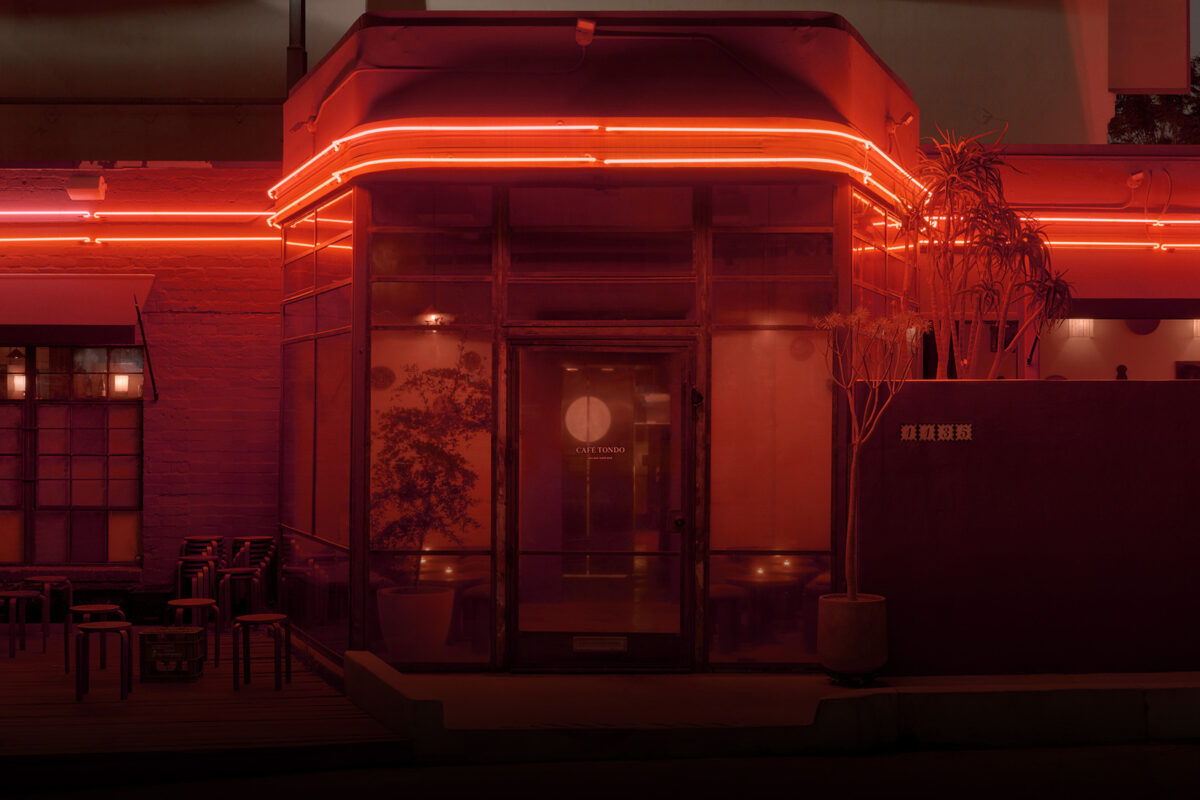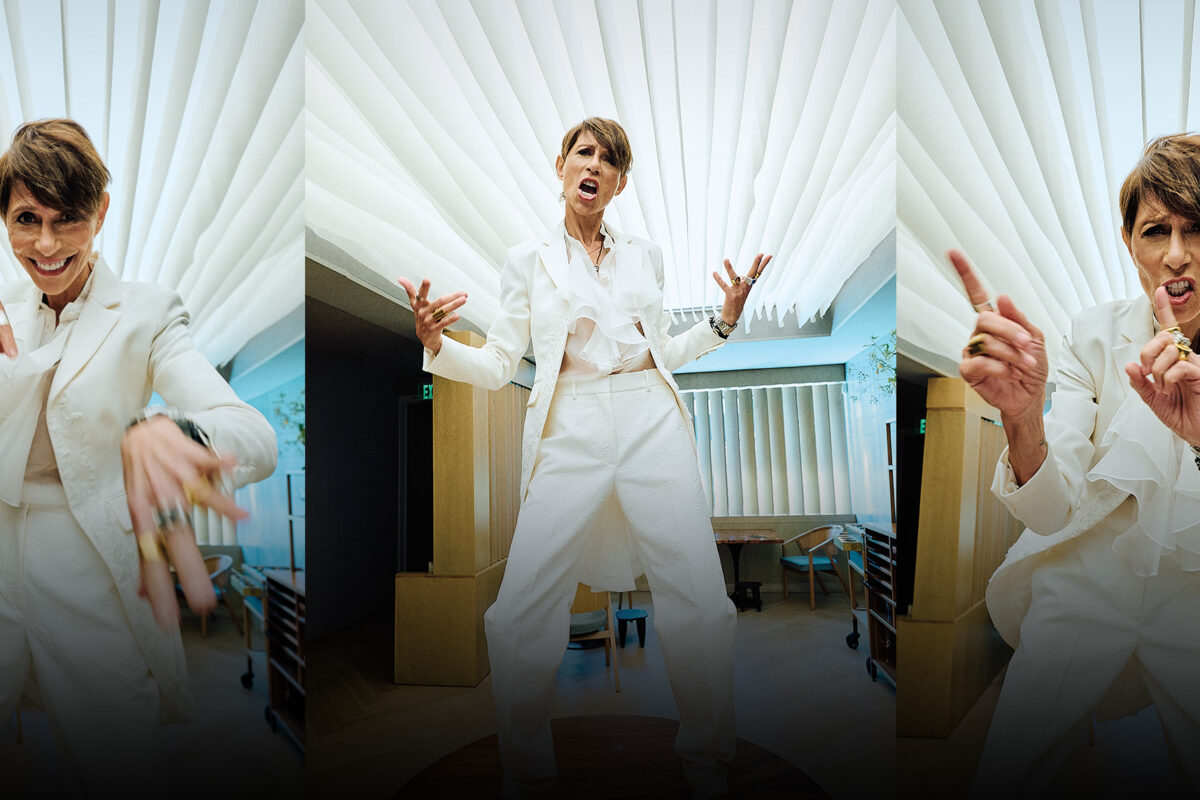Elizabeth Prueitt and Chad Robertson share the ingredients of their burgeoning empire
Words by ELIZABETH HOLMES
At first glance, the concepts of “artisanal” and “expansion” seem like oil and water, an impossible mix of divergent goals. But when you consider the cult-status bread from beloved San Francisco bakery Tartine, what with its taut, crunchy crust and its delectably chewy inside, it’s obvious founders Elisabeth Prueitt and Chad Robertson specialize in competing ideals.
After more than two decades of doing what they do so well in the Bay Area, Prueitt and Robertson are in the midst of a highly ambitious—they would prefer you not say the word aggressive, but it is that, too—expansion. Two new outposts opened in Seoul, South Korea, earlier this year and an epic new The Manufactory, about eight times the size of the San Francisco space on Alabama Street, is set to debut in early December in Downtown Los Angeles. December will also see a new Manufactory Food Hall in SFO’s international terminal, and three more Tartines—one in San Francisco on Ninth Avenue, one inside the Graduate Berkeley hotel (formerly Hotel Durant) and one in Hollywood—all slated to open early next year. Preliminary plans for Japan are in the works, too.
“Having a really great bakery on the corner is nice and I love that and we’ve done it,” says Robertson. “Being in the business for now 20 years, we’re in a position to do something that we couldn’t do before,” he says of the perfect combination of new partners, improved technology and outside investment which have made it all possible. “With the help of some great partner investors, we are currently building infrastructure to enable us to scale in a sustainable way without compromising quality or principles,” Robertson says.
“Being in the business for now 20 years, we’re in a position to do something that we couldn’t do before”
Prueitt and Robertson’s own story is as delicious as their pastries. The pair met in 1992 at The Culinary Institute of America in Hyde Park, New York, seated next to each other because their names were in consecutive order on the alphabetical roster. They married two years later, joined by, among other things, an ambitious entrepreneurial spirit. “It was never a question of, ‘Gee, should we?’” Prueitt recalls of their plans to start a business. “We were like, ‘OK, now, how are we going to do that?’” They spent most of 1995, the year after graduation, traveling France, reveling in their newlywed status, then ended up in the Bay Area thanks to renowned oven-maker Alan Scott, who offered the couple room and board for help around the farmhouse and ranch. Prueitt and Robertson first opened Bay Village Bakery in Point Reyes Station later in 1995 before moving to San Francisco, where they still live, to launch Tartine in 2002. It garnered rave reviews and national acclaim, beloved by foodies and techies alike. “You know why there’s always a line?” reads the Bon Appétit review. “Because this place is always worth it.”
Together, their working relationship is one of dividing and conquering, in the name of efficiency but also as a means of survival. “We’re both very, very stubborn,” Robertson says. “We can step on each other’s toes pretty quickly.” Instead the two have mastered their own realms. Prueitt handles the pastries; Robertson bakes the bread. She has taken the lead on the cocktail program (with Julian Cox, director of Tartine’s bar program); he sources the grain.
The two have mastered their own realms. Prueitt handles the pastries; Robertson bakes the bread
The Manufactory in Los Angeles is part of the Row DTLA project, a developing cultural destination that will feature a collection of 100 stores and 15 new restaurants at the edge of the Arts District. At 40,000 square feet, it is Tartine’s biggest and most ambitious space to date. Robertson recruited Arizona chef and fellow James Beard Foundation Award winner Chris Bianco, a friend for more than two decades, to help. There is an all-day restaurant called Tartine Bianco, plus there will be a coffee and ice cream walk-up window, a shopping market and a dinner-only restaurant called Alameda Supper Club. The space was designed by Studio BBA, the architects behind San Francisco’s Mister Jiu’s and Stonemill Matcha. Led by Bonnie Bridges, the design firm is known for its sustainable practices, light-filled industrial spaces and interest in creating dining areas that pair with production facilities.
Prueitt and Robertson studied the shortcomings of the bustling San Francisco Manufactory, like traffic bottlenecks or a too-small bread room. The L.A. components will open in phases, to allow for adjustments. “There is a lot of orchestration,” Prueitt says. “You have to let the whole orchestra warm up,” Robertson adds. “It sounds like a mess—and then everyone gets in tune.”
Prueitt and Robertson have had their share of a few false starts. There was Bar Tartine, the experimental restaurant on Valencia in San Francisco which closed in 2016, as well as a partnership with Blue Bottle Coffee that never materialized.
The first successful extension of Tartine, back in 2016, expanded on the beloved San Francisco bakery’s original cramped corner in San Francisco’s Mission District with a light-filled, 5,000-square-foot warehouse less than a mile away. The new location made it possible to centrally prep Tartine’s viennoiserie, including their buttery, famously flaky croissants, and then deliver them to satellite locations for on-site baking—allowing Tartine to produce more but still serve up a fresh-from-the-oven experience for its fans.
Initial runs, however, were disappointing. Something was amiss between the fermenting and the freezing processes, or the travel and baking. “From the outside you would be like, ‘There they go. They’re scaling. The quality is going down,’” Robertson says. “Even the team asked: ‘Why are we doing this?’” Robertson remained resolute. Scaling wasn’t the problem, it was managing the various stages. It took three months of fine-tuning but now he says, “The viennoiserie is better than we’ve ever made in the history of our company.”
Scaling is a chance to make more—bread, obviously—but Prueitt and Robertson see it as a chance to do more, too. It has allowed them to start their own coffee business, in partnership with and under the direction of Chris Jordan, an alum of Starbucks and the Bill & Melinda Gates Foundation’s TechnoServe nonprofit. Jordan is now Tartine’s chief operating officer and founder of the Coffee Manufactory, and he works directly with African and Central American farmers to source the beans. Robertson has developed relationships of his own with grain farmers in Washington state, paying for half up front so farmers could buy the seeds. That sort of thing would have been impossible when they were smaller.
“These are choices for how we want to scale,” Robertson says. “I’m not abandoning one thing because I am embracing the other.”
This article originally appeared in the Winter 2018/2019 issue of C magazine.



